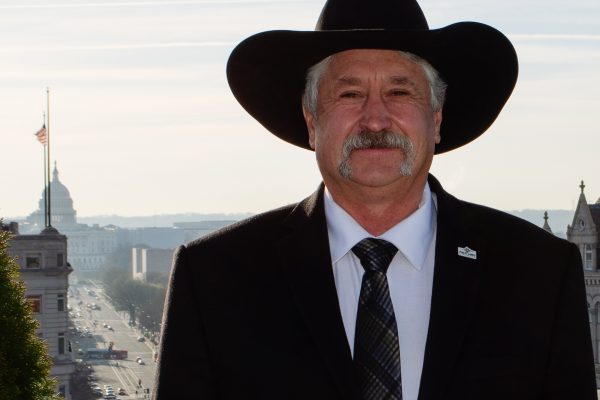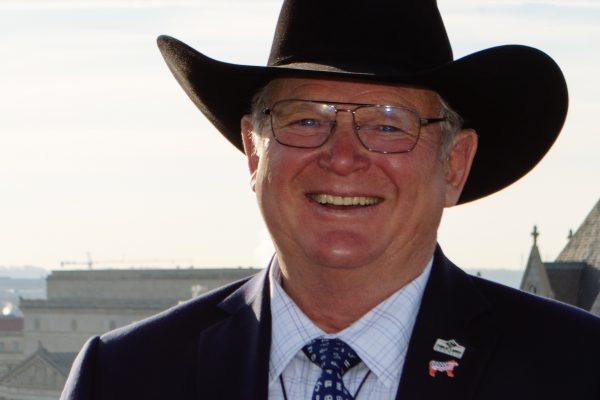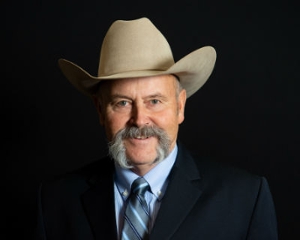Originally published in the Wyoming Livestock Roundup
Public lands ranching is a bit like three-dimensional chess with a board that rotates after every move: you navigate markets, weather, and consumer preference, while dealing with the added – and often unexpected – challenges that come with operating on public lands. When COVID-19 swept through the United States this spring, it was as though a brisk Casper breeze blew all the pieces off the chess board. Without exception, COVID-19 caused all of us to rethink many aspects of our lives. For a time, these adjustments were all-consuming, and rightfully so.
Among others, COVID-19 caused the livestock industry to confront unprecedented challenges in our supply chain. While we were busy reassuring the American consumer they would continue to have high-quality, safe American beef and lamb during COVID and beyond, activist groups worked against us at every turn.
Never one to waste a crisis, these groups ramped up their rhetoric to abolish ‘factory farms’, accused the industry of inhumane slaughter practices, and pushed to end meat consumption altogether. In these group’s eyes, the temporary plant closures were reason to celebrate. These organizations have exploited talks of euthanasia and depopulation to spark fear and pity in American consumers, paying no attention to facts.
We are here to remind them that facts do matter. We are here to tell the American producer that beef and lamb producers have durable production models that allow us to avoid the discussions of depopulation that faced pork and poultry producers. We are here to remind consumers that beef and lamb are healthy (and delicious) meals for their families (who are likely looking for new recipes this far into restaurant closures!). We are here to tell them that public lands ranchers provide an incredible service to federal agencies – and to the American public – by investing in the lands and waters these agencies manage.
As the executive director of the Public Lands Council, it is my job to be especially attuned to the challenges facing western cattle and sheep producers. These challenges seem to grow in number and in creativity by the day, but there are some repeat issues that unfortunately come back around.
Just this last month, Western Watersheds Project, Alliance for the Wild Rockies, and Yellowstone to Uintas Connection asked a court to prevent population management of grizzly bears involved in depredation of livestock in the Upper Green. Our state isn’t alone. Activist groups have vilified predator management from New Mexico to Washington, and everywhere in between. Producers in California, Oregon, and other states continue to face a litany of direct attacks by groups whose ultimate goal is to permanently remove livestock from public lands. These groups continue to be a significant threat to our way of life, and these groups continue to look for new ways to make their argument stick.
In Congress, we face different kinds of challenges altogether. In the aftermath of passing four different COVID-19 assistance packages, Congress is poised to continue its spending spree. Unfortunately, discussion of mandatory funding for the Land and Water Conservation Fund – to the tune of $900 million per year – has reached a head as the Senate takes up the Great American Outdoors Act. I don’t have to tell you why spending hundreds of millions of dollars every year to buy new federal land is terrifying and fundamentally irresponsible – especially at a time like this.
It’s not all bad news, though. While there will always be wolves at the door – sometimes literally – ranchers have a lot to celebrate. This administration has made great progress in revising the Endangered Species Act and the National Environmental Policy Act, and replaced the onerous “Waters of the United States” rule. For the first time in more than 20 years, we have a real chance to make BLM grazing regulations better for current and future permittees.
COVID-19 has had some positive side-effects, too. For the first time in decades, maybe generations, Americans have actively thought about their food supply and are asking questions. People are cooking at home, connecting with their families, and reading books. As the world took a collective pause, we have had the opportunity to demonstrate that cattle and sheep are part of an environmentally sustainable food system.
Ranchers will continue to meet every challenge – from predators to pandemics. It is important now, more than ever, that we remain focused and engaged because those who wish ill to our industries will not rest. When faced with seemingly insurmountable challenges, remember you are essential and your work provides for our national security. Like so many Americans, I am thankful for all you do. Someday, I hope one of you teaches me how to play chess.
Kaitlynn Glover
Executive Director
Public Lands Council





